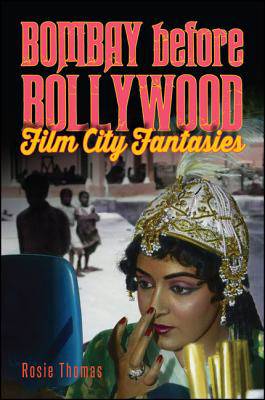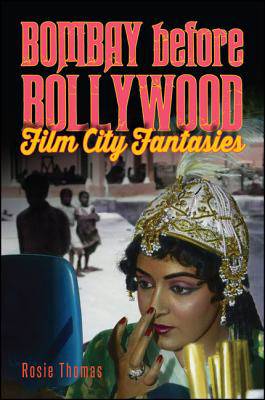
- Retrait gratuit dans votre magasin Club
- 7.000.000 titres dans notre catalogue
- Payer en toute sécurité
- Toujours un magasin près de chez vous
- Retrait gratuit dans votre magasin Club
- 7.000.000 titres dans notre catalogue
- Payer en toute sécurité
- Toujours un magasin près de chez vous
Description
Bombay before Bollywood offers a fresh, alternative look at the history of Indian cinema. Avoiding the conventional focus on India's social and mythological films, Rosie Thomas examines the subaltern genres of the "magic and fighting films"--the fantasy, costume, and stunt films popular in the decades before and immediately after independence. She explores the influence of this other cinema on the big-budget masala films of the 1970s and 1980s, before "Bollywood" erupted onto the world stage in the mid-1990s. Thomas focuses on key moments in this hidden history, including the 1924 fairy fantasy Gul-e-Bakavali; the 1933 talkie Lal-e-Yaman; the exploits of stunt queen Fearless Nadia; the magical neverlands of Hatimtai and Aladdin and the Wonderful Lamp; and the 1960s stunt capers Zimbo and Khilari. She includes a detailed ethnographic account of the Bombay film industry of the early 1980s, centering on the beliefs and fantasies of filmmakers themselves with regard to filmmaking and film audiences, and on-the-ground operations of the industry. A welcome addition to the fields of film studies and cultural studies, the book will also appeal to general readers with an interest in Indian cinema.
Spécifications
Parties prenantes
- Auteur(s) :
- Editeur:
Contenu
- Nombre de pages :
- 346
- Langue:
- Anglais
- Collection :
Caractéristiques
- EAN:
- 9781438456751
- Date de parution :
- 01-03-15
- Format:
- Livre relié
- Format numérique:
- Genaaid
- Dimensions :
- 163 mm x 217 mm
- Poids :
- 594 g







